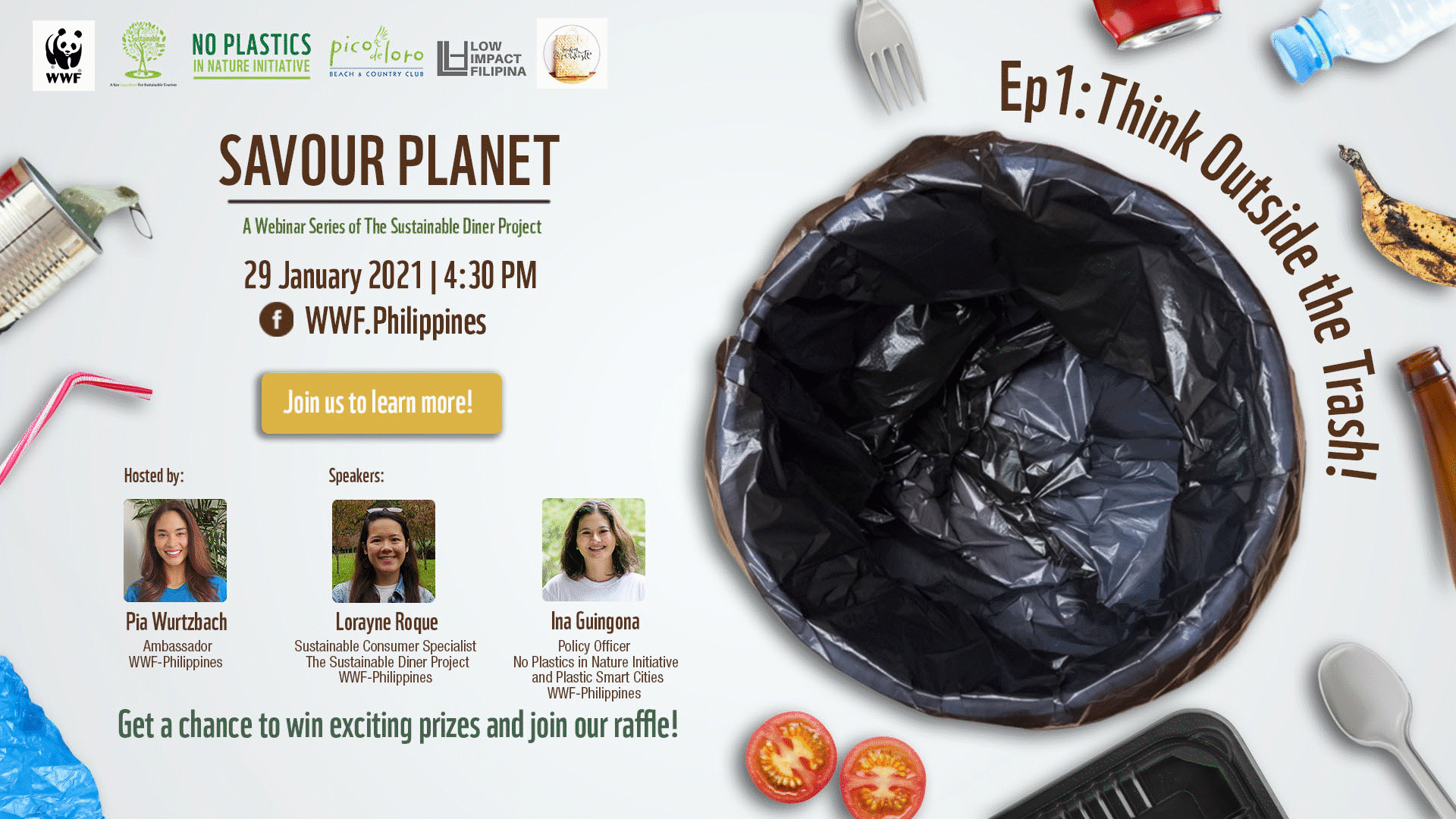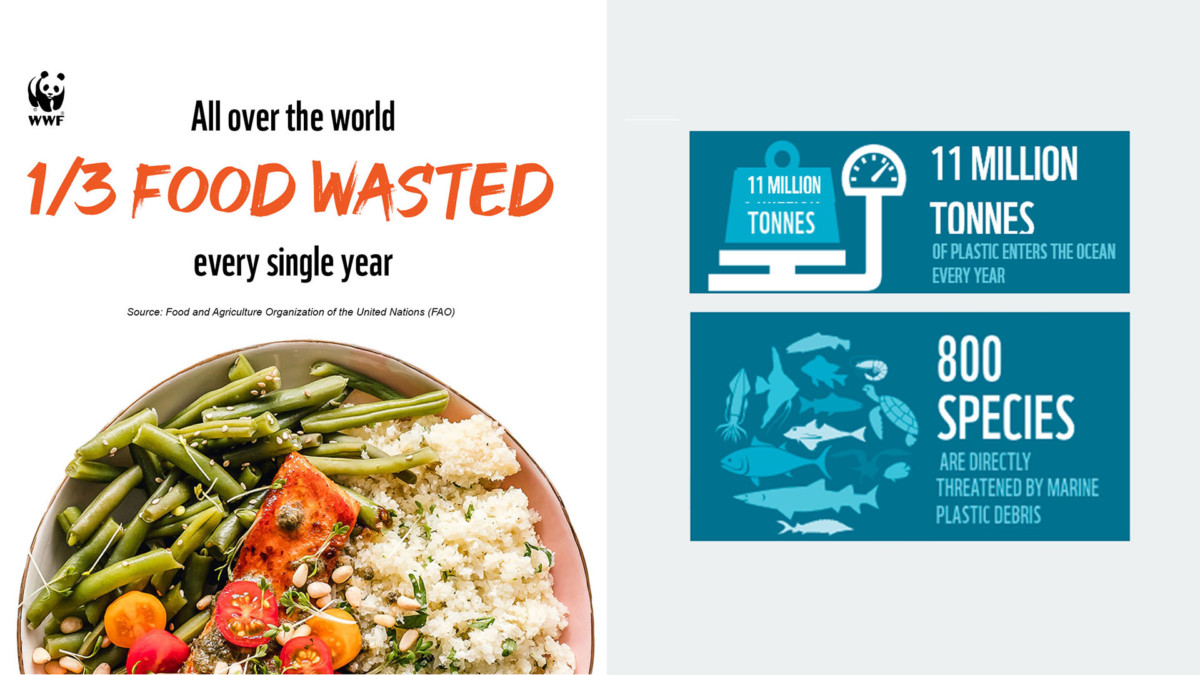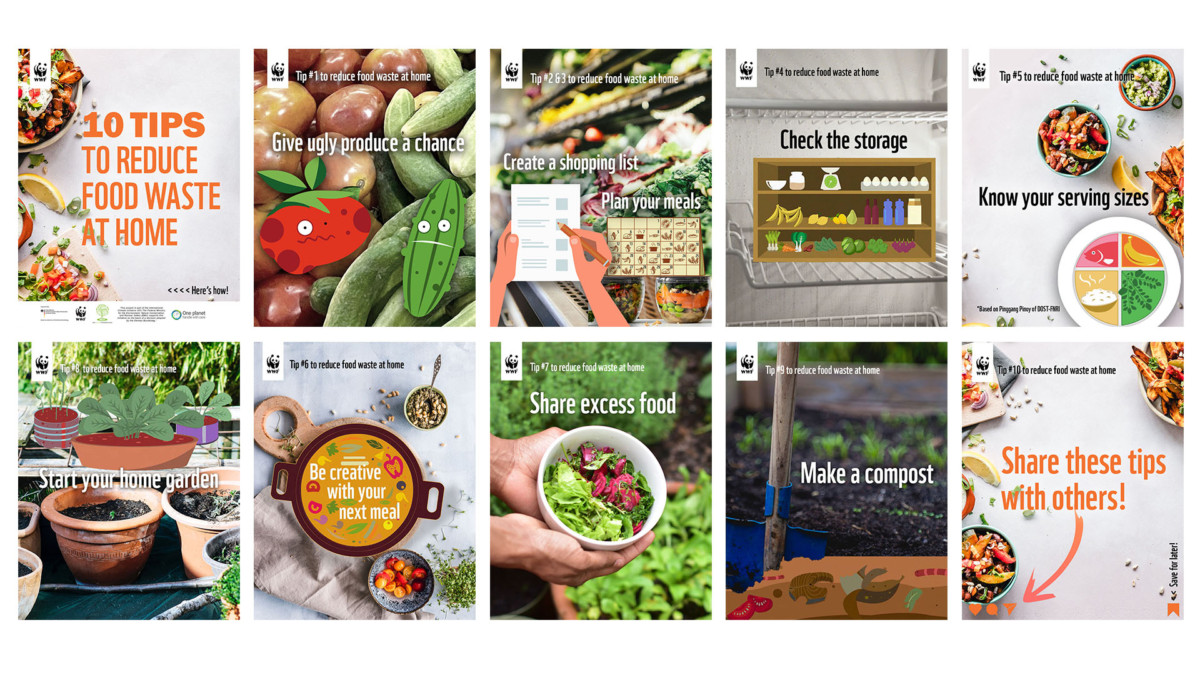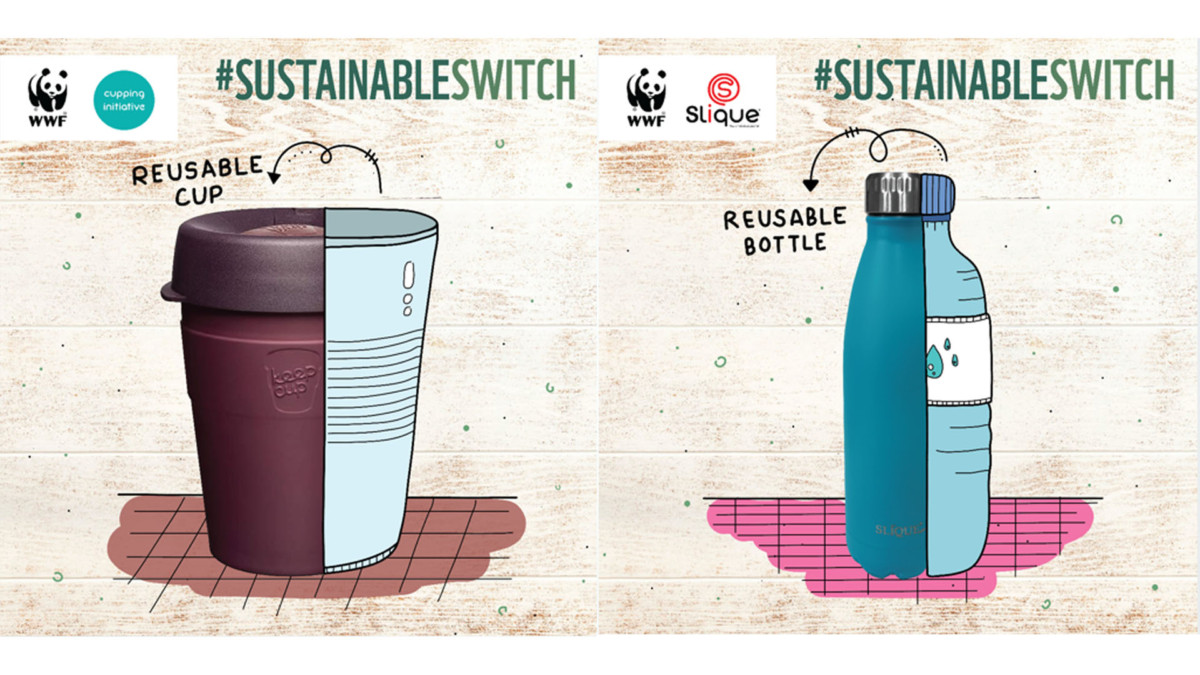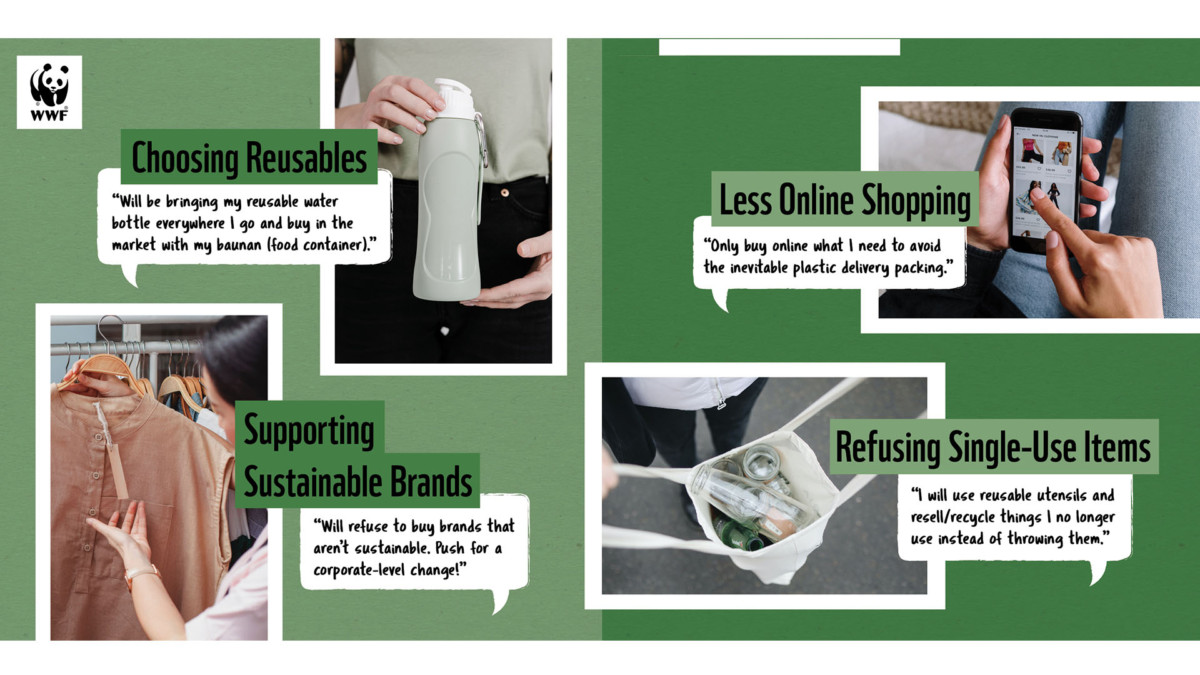Reducing Waste to Save Our Planet: It Starts with You
January 2021
Savour Planet Episode 1: Think Outside the Trash!
Savour Planet is a webinar series that aims to demonstrate how to make sustainable dining a way of life. The title "Savour Planet" - a play on “Save Our Planet” - serves as a reminder that it is our responsibility to take care of our planet as we consume natural resources, such as food and water, for our daily needs.
Savour Planet Episode 1 was launched on the 29th of January, in time for National Zero Waste Month. The webinar was hosted by WWF-Philippines Ambassador Pia Wurtzbach, and had three goals, which were 1) To inform and educate about the environmental impacts of food waste and food-related plastic waste, 2) To provide actionable steps on how to reduce such waste, and 3) To share the success story of an establishment and of ordinary individuals who have successfully reduced their food and plastic waste.
Let’s Face the Facts: Why is Reducing Waste Important?
Food waste is a threat to the environment because it emits methane - a potent greenhouse gas that promotes global warming. Plastics from food packaging also enter our environment, threatening marine species, including those that are endangered and those that are consumed by humans. Worldwide, microplastics have already contaminated our marine food sources.
Approximately $1 trillion worth of food is lost or wasted every year — amounting to roughly 1/3 of the world’s food. On the other hand, 11 million tonnes of plastics enter the ocean yearly, of equal weight of 11 million sedans being thrown into the sea.
Every Small Effort Counts
Consistent, sustainable acts toward reducing waste can make a big impact. Zero waste is not about creating no waste whatsoever - rather, it is about taking small steps towards managing the waste you produce. As shared by Jia Rubio-Monserrat, Founder of Buhay Zero Waste, be patient with yourself, and enjoy your own zero waste journey. Our collective actions can make a difference - together, a zero waste future is possible.
Learn more from the success stories shared by representatives from Buhay Zero Waste and Low Impact Filipina, as well as Pico de Loro, among The Sustainable Diner’s partner establishments. In case you missed the livestream, watch the video replay anytime and anywhere here: Savour Planet Episode 1
Always remember to do the 10 tips to reduce food waste at home:
1) Give ugly produce a chance
2) Create a shopping list
3) Plan your meal
4) Check the storage
5) Know your serving sizes
6) Share these tips with others!
7) Be creative with your next meal
8) Share excess food
9) Start your home garden
10) Make a compost
For more information on how to reduce food waste, read the article: bit.ly/FLWfacts
Here are some tips on how to reduce plastic waste:
1) Businesses need to take charge and provide options for consumers.
Push for sustainable corporate level change in the fight against plastic pollution.
2) Make the Sustainable Switch
However, make sure to reuse your reusables for as long as possible.
3) Make small efforts everyday because every effort counts
The Sustainable Diner project, under Sustainable Consumption and Production, is part of the International Climate Initiative (IKI). The Federal Ministry for the Environment, Nature Conservation, and Nuclear Safety (BMU) supports this initiative on the basis of a decision adopted by the German Bundestag.
The Sustainable Diner and Soilmate Project Team:
Melody Melo-Rijk, Jonna Ellaine Jordan, Lorayne Therese Roque, Alexa Jeanne Lasch, Iris Joy Abrigo, Liezl Stuart del Rosario, Kristan Gabriel Villalon, Jenette Callada, Monique Mahusay
No Plastics in Nature Initiative Team:
Czarina Constantino - Panopio, Ina Guingona
For more information, please contact:
Melody Melo-Rijk
Sustainable Consumption and Production Project Manager
mmelorijk@wwf.org.ph
Jonna Ellaine Jordan
Integrated Marketing Communications Specialist
jjordan@wwf.org.ph
Lorayne Therese Roque
Sustainable Consumer Specialist
lroque@wwf.org.ph
Ina Guingona
Policy Officer
fguingona@wwf.org.ph
